“Listen now to the newest episode from ‘Call Her Daddy’: Vice President Kamala Harris.” I checked the notification twice to ensure I read it right and, to my utter shock, it was true — the vice president of the United States was a guest on the “Call Her Daddy” podcast. This decision is surprising; however, in the age of digital journalism, it was a genius move for connecting with her target audience.
Harris has been picky about her interview appearances since announcing her campaign for president, yet, somehow, the “Call Her Daddy” podcast made the list. Known for its raunchy conversations around sex and bad decisions, how could this appearance be beneficial to her campaign? Simply put, that’s where her main audience is.
Harris is acutely aware of who is important in the upcoming election: women, particularly, young women. According to Spotify, “Call Her Daddy” is the most listened-to podcast by women on the platform. Perhaps young women aren’t regularly listening to major news channels, but there’s a good chance they listen to “Call Her Daddy.” Or, if they’re like me, they’re at least intrigued by the notification.
A considerable amount of Generation Z will be voting in the presidential election for the first time this November, yet many are wary of whether they will vote at all. Disillusioned by politicians, young people are tired of their over-promising and under-delivering – they are tired of politics overall.
I can’t speak for my entire generation, but I am sick of hearing about politicians’ plans or “concepts of plans.” Frankly, I don’t believe any of it anymore. What I am more inclined to believe, though, is why they’re running and why they care at all. This is exactly what “Call Her Daddy” host Alex Cooper got from Harris.
Throughout the interview, Harris discussed how many of today’s issues, especially those centering women, have affected her personally and why she was inspired to lead in the first place. Harris has never been more genuine than in this interview, and it’s likely to attract previously uninterested voters. It could quickly be regarded as unserious, but that would be doing it — and journalism, overall — a disservice. This is the new format journalism is moving toward, a comfortable, conversation-based format that is not too formal or stuffy.
Finally, we heard some emotion and exasperation in the vice president’s voice. Finally, we get to listen to her be passionate and upset about an issue, rather than tell us the same, stiffly regurgitated spiel on how she plans to fix it.
This podcast interview may be unorthodox, but appearances like these are crucial for Harris’s campaign and galvanizing young people. Unlike an appearance on a traditional news outlet, the interview was not rigid or even policy-based — it was a conversation. This is what young people want to hear.
In the digital age, this is what many people are gravitating toward. With trust in the media being so low, people are more likely to believe what they hear on their favorite podcast than on the radio or television. Plus, with the public getting their news from so many different places, it only makes sense that news will start to take on new formats.
Say what you will about “Call Her Daddy,” but this was a well-structured interview that brought out a new side of the vice president. I was skeptical when I clicked play, but by the time the episode was over, I had a different level of respect for Harris, not just as a politician, but as a person. Podcasts will pioneer a new era in journalism, and “Call Her Daddy” is just the start.




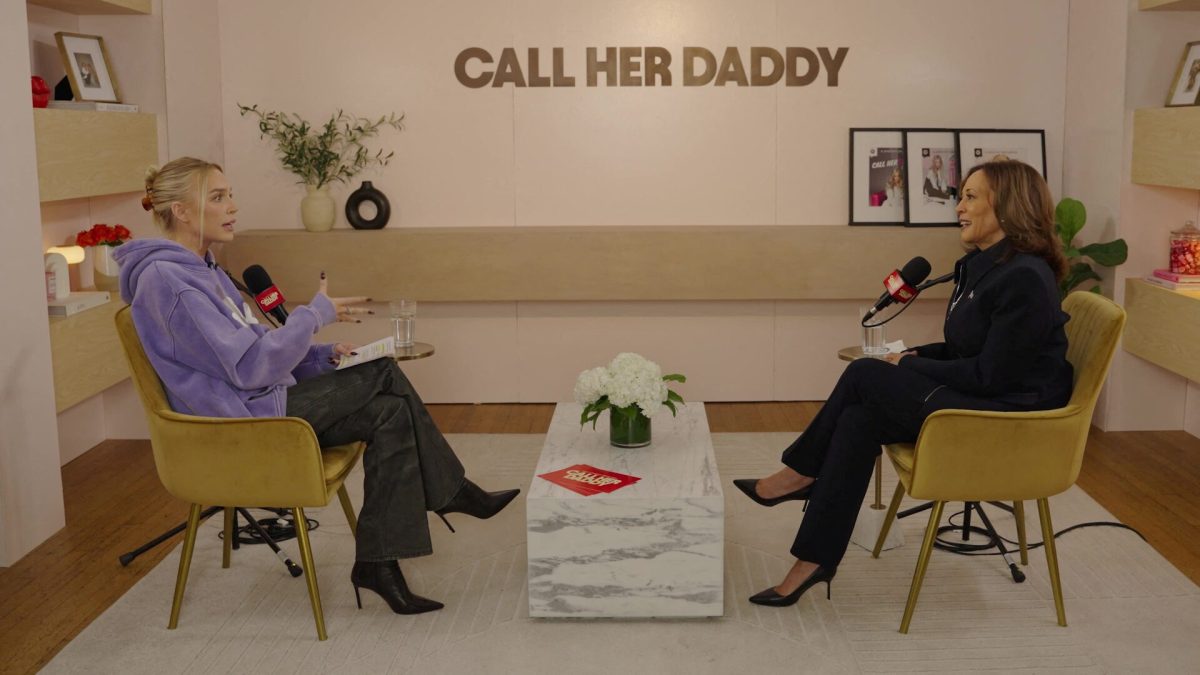


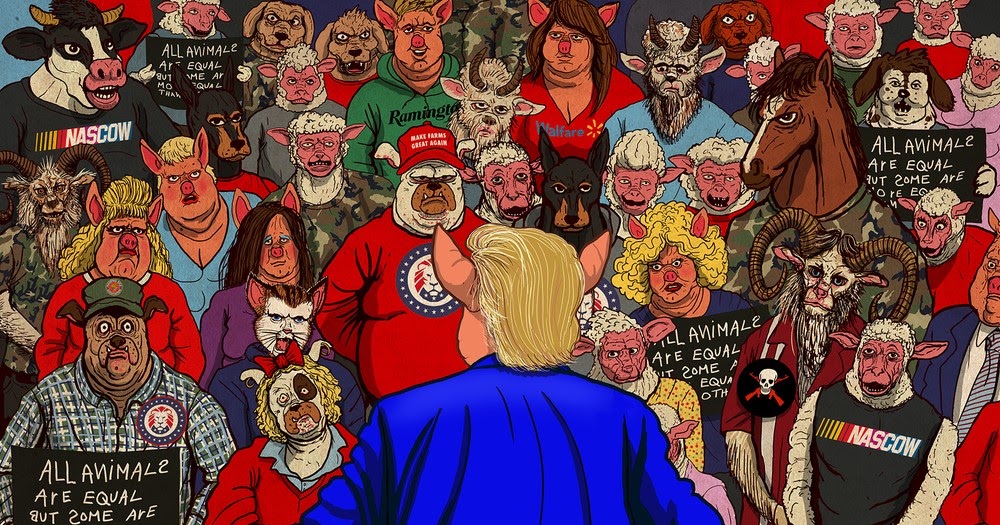
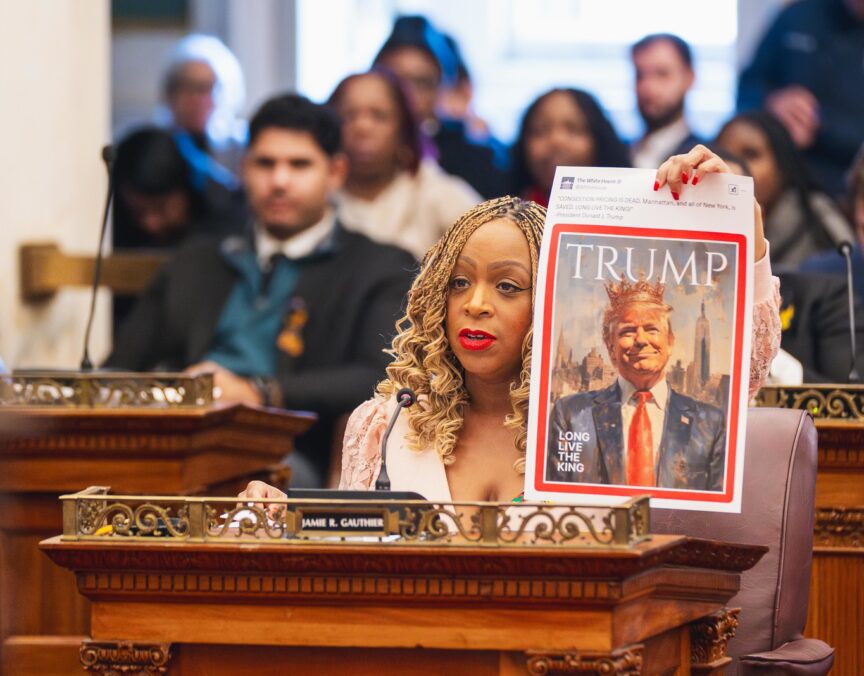
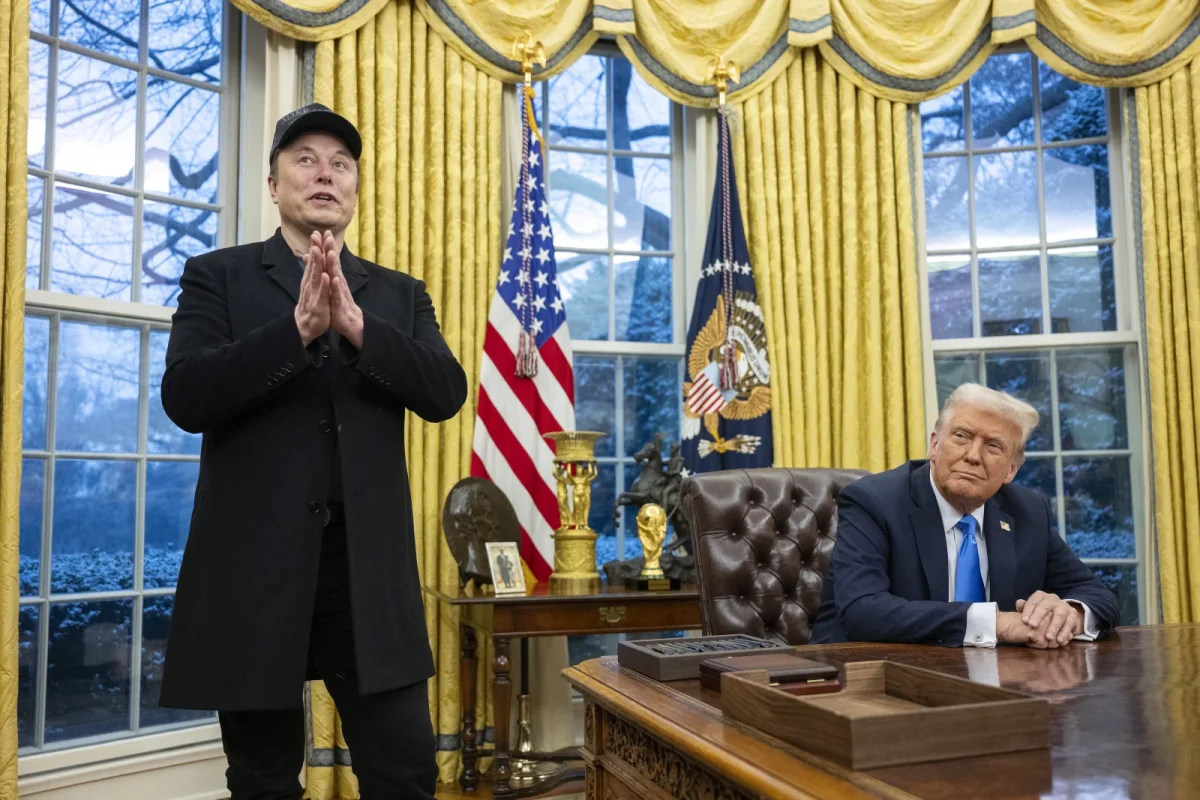
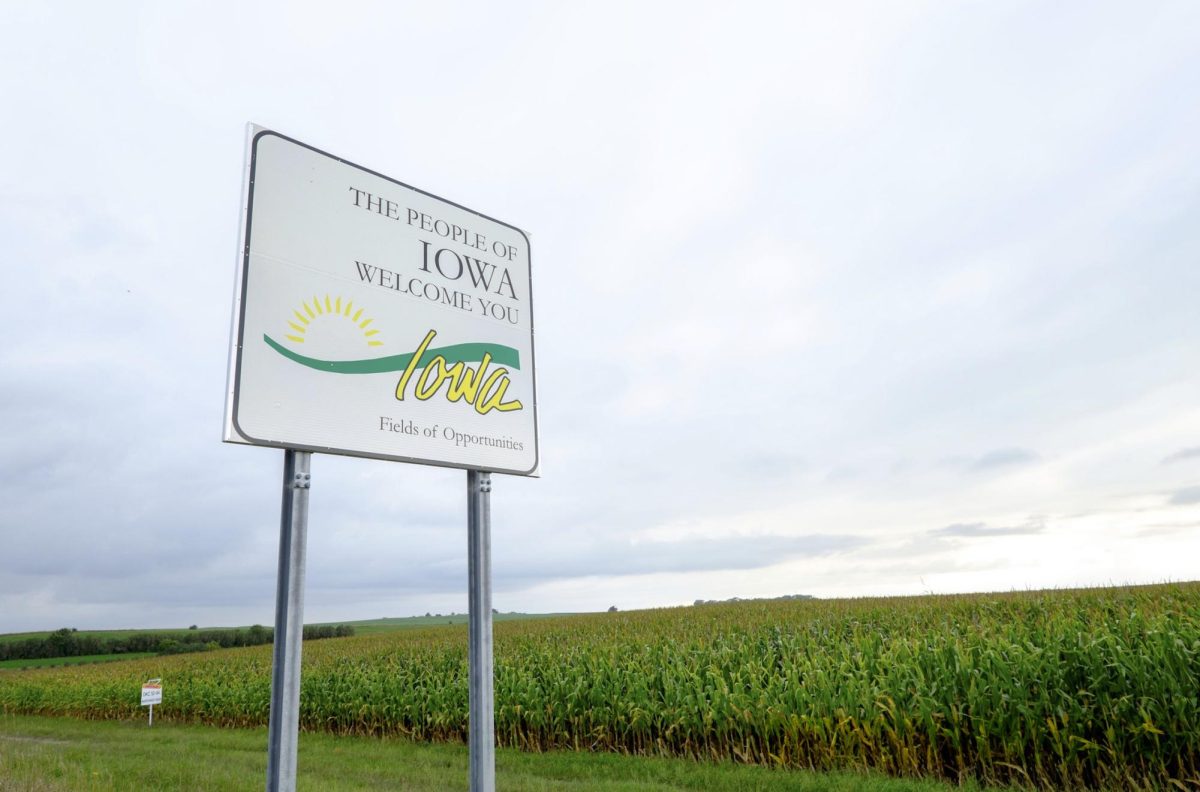
Brenton Everett • Oct 22, 2024 at 1:59 pm
Thank you for that insight. Information is being shared in so many different mediums and that is progress.